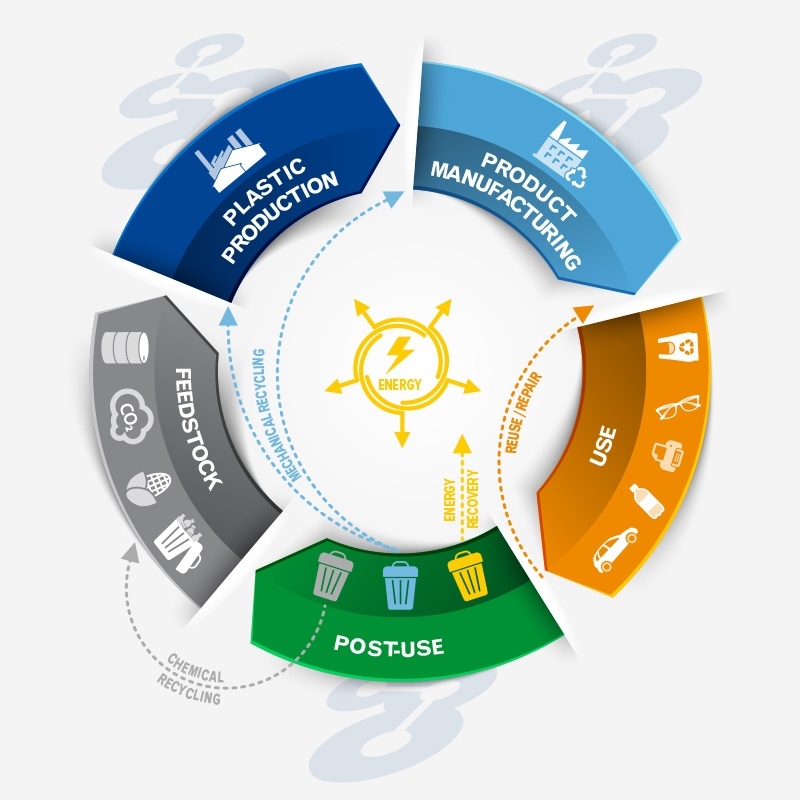Circular Economy
In contrast to a linear economy which focuses on a ‘make, use and discard’ principle, a circular economy is aimed at minimizing consumption, keeping resources in use for as long as possible, getting the maximum value from them during their lifetime and finally recovering and recycling products and materials at the end of each service life.
Whereas in a linear system, raw materials are lost after use, a circular economy is modeled on nature itself and mirrors the process where everything goes through a cycle. For example, when plants and animals die, nutrients return to the earth to be reused and waste which is produced by one species becomes a source of food for another. An inclusive circular economy requires that both material resources and human resources are respectfully used.
Ensuring that SONGWON’s actions reflect this requires us to rethink every step of a products’ cycle and re-examine the way we approach development, material selection, manufacturing and distribution. We know that working together with others is the best way to tackle the big challenges facing the world. For our world, waste is no longer an option and time is of the essence. Therefore, we actively seek to join forces with other businesses, collaborate with partners and do our part to drive the plastics industry’s transition towards a more sustainable circular economy.
Plastics are valuable resources that can be used again even when they reach the end of their life.
Not only they can become new plastics, they can also be used as chemical raw materials or be transformed into energy sources.

